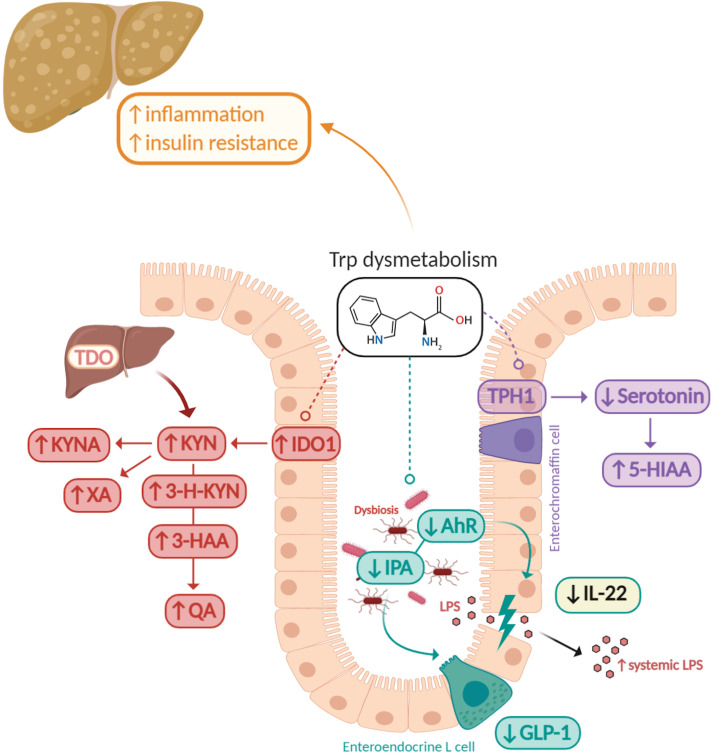Figure 3.
Tryptophan metabolism alterations in metabolic syndrome. Tryptophan dysmetabolism is associated with liver inflammation, steatosis and insulin resistance. In metabolic syndrome (MetS), the inflammatory state is associated with kynurenine (KYN) production through the activation of indoleamine 2,3-dioxygenase 1 (IDO1). This leads to an increase in kynurenine-derived metabolites, such as kynurenic acid (KYNA), xanthurenic acid (XA), 3-hydroxykynurenine (3-H-KYN), 3-hydroxyanthranilic acid (3-HAA) and quinolinic acid (QA). In parallel, the gut microbiota presents a defect in the production of aryl hydrocarbon receptor (AhR) ligands such as indole-3-propionic acid (IPA). The incretin hormone glucagon-like peptide 1 (GLP-1) secretion from intestinal enteroendocrine L cells and interleukin (IL)-22 production are decreased, altering gut permeability and promoting lipopolysaccharide (LPS) translocation. Serotonin (5-HT) biosynthesis from intestinal enterochromaffin cells is also reduced in the context of MetS due to a decrease in the production of microbiota-derived metabolites inducing the production of host 5-HT.

